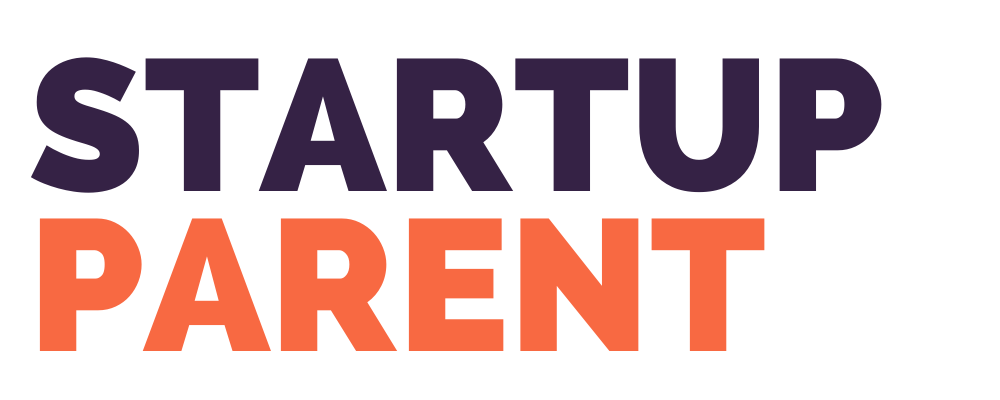What’s it like to be father to three kids four and under when your professional life is dedicated to helping others create deliberately? Today, we get to interview Mathias Jakobsen, founder of Think Clearly.
Startup Pregnant: You and your wife just had your third child join your family. First, congratulations. Three kids is no joke. Would you start by telling me a bit about parenting and what it’s been like with your newest little one?
MATHIAS: Our third child, Juno, was born just a few months ago. She joins her big brother Noah, who is almost four, who is somehow a big kid and small boy at the same time. She also joins her big sister Uma, who is two.
So now we have three kids under four in our household. It is a lot. Sometimes I notice that I’m in situations where it’s just too much, they’re so overwhelming. And, how do I say this… They’re just being assholes sometimes. (Laughs) I so badly want them to just calm down and stop pushing my buttons.
But even in the craziest moment there is not a time when I wish they weren’t there. I never wish that we only had one or two kids. It’s the opposite almost. Even at the times when it’s the most crazy and I would like a ten-minute break. But there is something there, something exciting about the potential of all of these kids. It’s madness at times, but there is never a time I want to be without it.
How do you explain what parenting is and fatherhood is to friends who aren’t parents? What would you say to a friend who is thinking about having a family?
You know, I knew I wanted a family, but it took me some encouragement and pushing to consider what was holding me back from becoming a parent. I, like many friends, felt at first that I wasn’t ready for the sacrifice or the tradeoffs. That there were more things I wanted to do on my own.
What I like to tell my friends now is that when you’re standing there, pre-parenthood, projecting and looking into the future, a lot of it can look like a trade-off. It appears from the outside that the parent has to constantly choose between drinks with co-workers or dinner with family. It seems like they have to give up on something they enjoy all of the time.
I like to say that while it may look like a sacrifice from the outside, it doesn’t feel like a sacrifice when you’re a parent. Sure, I might not go out to drinks as often, but I’m not often conflicted. Going home and being with my family is what I most want to do. It doesn’t feel like a loss; it feels like I’ve gained something more important to me.
That mental reframe is extremely important—from the outside before you have kids it looks like a loss. But on the inside when you’re raising kids, it doesn’t feel at all like a loss.
Isn’t that wild, that a lot of times we choose not to do something because of how we think we’ll feel. And we’re just not great at predicting how something will actually feel.
Yes, because in that projection we can’t account for how we ourselves will change in the process. We can analyze and predict how our circumstances will be different, but we can’t account for how our values and world views will shift. It’s almost impossible to predict your future when you can’t know how you’ll change as a person inside of that future.
Can you tell us a little about how you’ve changed in this process? What for you personally has been transformative about being a father?
One thing that has definitely changed is my belief in my ability to overcome super challenging moments. In challenging situations, I feel like there are two layers: one is the situation itself and the second is a more meta layer where you wonder “Is this worth it?” In work, especially with consulting, you always have the opportunity to walk out. If something is too frustrating, too much bull sh*t to go on, you can always determine that it’s not worth it and be done.
I think as a parent there is something really empowering in that the second layer of “Is this worth it?” is absent. The answer is always yes. There is no question, no doubt; quitting is not an option and you don’t want to.
One of my favorite things you offer on your website Think Clearly are your Clarity Cards. Can you walk us through why these cards are so useful?
We are in a time where the way we work is a culture of perpetual doing. It’s getting shit done, productivity above all. But it becomes sometimes quite headless, just pursuing efficiency without reflecting on what the actual priority is.
There is a tool called the Eisenhower Framework which is essentially a two-by-two grid divided between important, unimportant, urgent, and non-urgent. We tend to over-prioritize the things that are urgent regardless of whether they’re actually important or not. This leaves us with too little time for the important but non-urgent tasks.
Because we keep maxing out on doing, doing, doing we don’t actually take the time and the space to not do and to just be. We don’t realize how seemingly unproductive reflection is actually precisely how we can increase our capacity to learn and grow later on. We don’t take the time out to grow or to learn how our capacity can actually increase dramatically by learning and growing ourselves.
The Clarity Cards are a tool for pausing, disconnecting, and reflecting. The process is unconstrained and completely analog—all you need are the cards, a journal, and a pen. You prompt your brain with questions and then you simply give your brain and your hand time to process. The cards help by asking unexpected questions, things you might not tune into or wonder on your own.
I know that as a father, you have never been pregnant, but you’ve been around and worked with pregnant women. What do you think that more people need to know about pregnancy?
It’s different for everyone. I think that’s often misunderstood. People sometimes think that if they ask enough people, they’ll be able to decipher the pattern. Certainly there are patterns, but its vastly different for everyone. It’s so easy to get hung up on all the expectations. This applies to not just the pregnant person but also the person co-living with the pregnant person. You have to try to let go of expectations and embrace the reality you are in.
ABOUT MATHIAS:
Mathias Jakobsen is a husband, father of three children and the creator of Think Clearly. Born in Denmark, he founded his first company at age 15, building digital solutions for companies.
Powered by digital, he later branched into fashion journalism and photography before moving to New York City, where he worked as a life coach and consultant for startup CEOs and corporate executives. He has worked with Bloomberg, Google, The New York Times, Carrot Creative, Holstee, Coca-Cola, Pratt, The Wharton School, CUNY, FiftyThree and many more.

